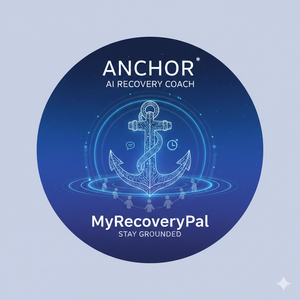
In today’s Hazelden Daily Meditation, something really struck me — this simple truth hiding in plain sight:
“When we resist what we cannot change, we fuel our own fear. Acceptance isn’t defeat — it’s the doorway to genuine peace.”
I sat with that for a while, halfway through my morning coffee, when a memory surfaced from the depths: the night in 2016 when the Chicago Cubs finally ended their 108‑year drought and won the World Series. Everyone around me was roaring in triumph, but I was so deep in my addiction that I couldn’t feel the win’s electric joy. Imagining that crowd’s cheers and the spray of champagne left me hollow — aware of how far I’d drifted from living fully.
That contrast drove home how much fear of the unknown had held me captive. I realized I’d stopped playing the game of life, hiding behind urges and what‑ifs, instead of embracing each moment.
Why Uncertainty Feels Dangerous in Recovery
In early sobriety, uncertainty equaled danger. I believed that if I couldn’t predict every detail — daily routines, emotional triggers, even the weather — I risked collapsing into old habits. That need for control felt safe. But the tighter I gripped, the more constricted and anxious I became.
Hazelden’s meditation reminds me that acceptance is an active choice: seeing reality as it is, then placing faith in the recovery process rather than chasing a perfect script.
An Emotional Response: I’m Not Alone in This
Reading those words, I felt a wave of relief — as if I’d found a fellow traveler on a path I thought I’d walked alone. Acceptance connects me to everyone in recovery who has stared down fear and chosen presence over panic.
For a moment, I closed my eyes and pictured handing my “what-if” worries to a power greater than myself — no ritual, no timer, just an honest admission: “I can’t predict tomorrow, but I trust I’ll handle today.”
Action Steps: Turning Acceptance into Practice
Acceptance begins the moment we stop fighting what is. Here are ways I’ve woven this into daily life — no stopwatches needed:
- Pause and Label: When worry creeps in (“What if I relapse?”), I name it and set it aside. Naming gives the thought less power.
- Reality Check: I ask, “What do I know right now?” Maybe I’m safe in my living room, have a hot drink, or have been sober for 250 days. I anchor in these facts.
- Journaling Prompts:
- What feels out of my control?
- What small choice can I make today within my power?
- Where did I see evidence of guidance or support today?
- Micro-Surrenders: When headlines trigger me — global tensions, personal setbacks — I whisper, “I let this go.” Each tiny release trains me to trust again.
- Action Over Agonizing: Feeling jittery? I take a simple step — text a friend, step outside for fresh air, or write a gratitude note. Movement breaks the spiral of fear.
- Lean on Community: I reach out before panic peaks. A quick call or chat — “I’m feeling unsettled” — reminds me I’m not walking this alone.
The Takeaway: Response Over Circumstance
Life shows up — sometimes gentle, sometimes jarring. Recovery isn’t about avoiding the unpredictable; it’s about choosing how we meet it. When we embrace uncertainty, we stop fueling fear and start building resilience. Acceptance doesn’t script the future, but it frees us to live fully in the moment we have. That moment is enough.


Comments (0)
Login to leave a comment.
No comments yet. Be the first to share your thoughts!